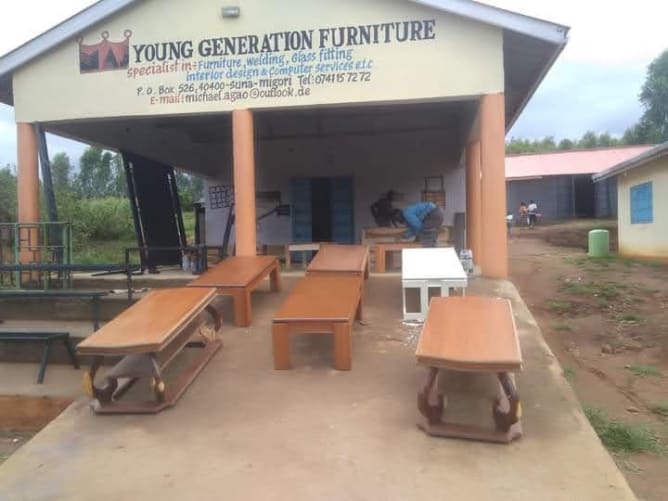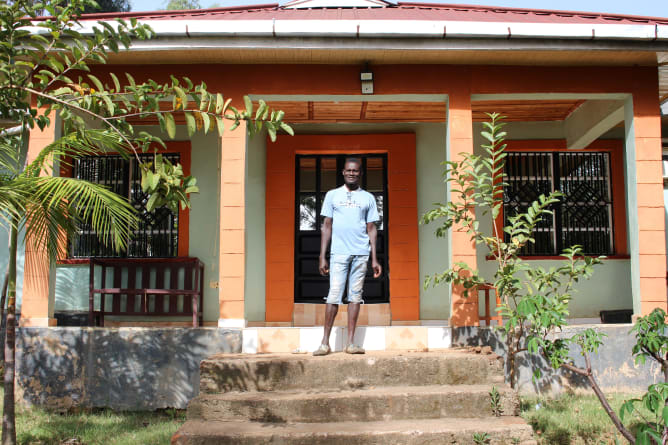Offer the next generation a perspective
My father and I see the need for training places for the young people living in his place of residence (Migori). My father was born in Kenya and has been dealing with the subject of education in Kenya for a long time. He lived in Switzerland for over 20 years and emigrated back to Kenya in 2017. In 2019 he then founded the company Young Generation Furniture and was thus able to offer young people a perspective. They sold a lot of self-made furniture and thus did wage work. However, due to the corona pandemic, the business went bankrupt and my father did not have the financial means to make this offer possible again.
A project by the local people
In dealing with my culture and skin color, I am aware that many aid projects are corrupt, exploitative and not participatory. It is important to us that this project is designed and implemented by the people who live there. I will only take on the administrative tasks myself. The ideas and their implementation all come from my father and from the mutual exchange with the young people. Since working with wood also means that trees are felled, we would like to replace the felled trees with new ones to compensate. Another environmental task for the youngsters involves collecting waste from a nearby river flooded with rubbish and selling it to a recycling company.
Created budget: Machines: 420 CHF Construction of a roof for the machines outside the company building (risk of damage to the building due to vibration from the machines): CHF 1’000 CHF Hand tools: 260 CHF Paint and varnish: 150 CHF Wood and metal: CHF 3’200 CHF Cost of new trees: 500 CHF 2x cards: 100 CHF Reserve and cost of thank you cards: 300 CHF
Total costs: 5’930 CHF
Provides young people with a place to learn
The Kenyan government invests poorly in the next generation. School education is still influenced by the colonial era and consists of 16 school years. After that, not all young people are able to study at a university for financial reasons. As a result, young people finish school with little or no future prospects. The young men mostly become taxi drivers, while the young women have children at an early age. They have few female role models that could empower them to take the initiative. Their career is made even more difficult by patriarchal social norms. In Kenya, men are increasingly valued, which is why families prefer to invest in their sons. Many young women therefore do not have the opportunity to participate in all 16 school years. However, the interest and motivation of young people, both men and women, to learn something is enormous.



